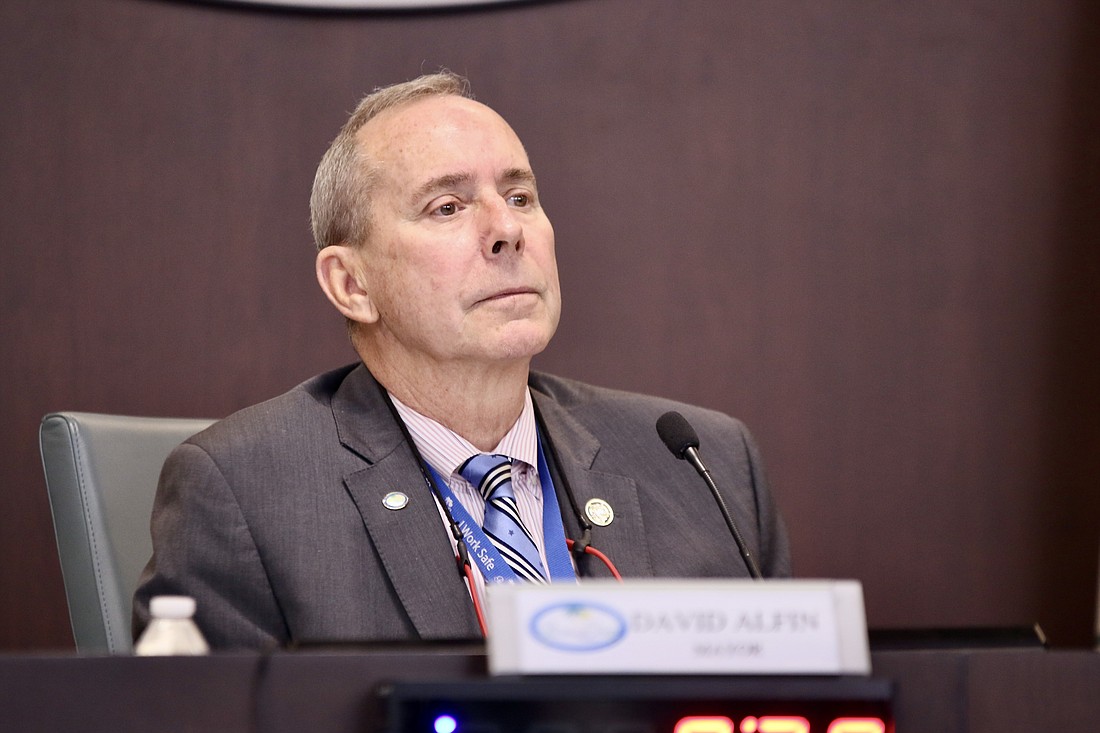- December 15, 2025

As the Palm Coast City Council prepares to vote on an proposed increase to the city’s utilities rates, the council members are not convinced an 18% increase is necessary at this time.
The council heard an update on the rate study and proposed rates from Utility Director Steve Flanagan and Eric Grau from Stantec Consulting Services at the Feb. 13 workshop meeting. The proposed 18% would be split over the next two years in either two installments or three 6% increase installments, with a 3.5% increase every year thereafter, Grau said.
Mayor David Alfin said he was not convinced that the levels proposed increases were necessary at this time.
“I am troubled by your presentation," Alfin told Flanagan. "I'm not fearing a consequence of not investing at this level, at this moment, at this time."
Utility Director Steve Flanagan said in a previous interview with the Observer that the increases to the utility rates had become necessary because of the city’s growth and the continued increases to operating costs.
The council first heard an increase would be necessary last November when Grau and Stantec Consulting Services first present the commissioned rate study. The study predicted a $635 million-need for utility capital projects between 2024 and 2033. Those projects include expanding wastewater treatment plants and the capacity of the city's water reclamation facilities.
That rate study said because of Palm Coast's continued growth, $225 million would be needed to fund capital projects over the next several years alone.
The study showed that without more funding, the city’s operating reserves will be exhausted by 2028, Grau said.
Residents are not the only ones that would see the increase. Impact fees for new connection also need to increase, Grau said — 35.71% for water capacity fees and 24.98% for wastewater.
Per state statutes, capacity fees can not be increased more than 50% of the current fee, and not more than once every four years. Additionally, increases greater than 25% must be phased in over four years.
I'm not fearing a consequence of not investing at this level, at this moment, at this time."
— DAVID ALFIN, Palm Coast mayor
Alfin said he did not see the immediate need for the increase to utility rates. As far as the city's projected growth goes, he said, it is on track with what ITT planned when developing Palm Coast.
Alfin said he wanted to know at the next meeting "what services would need to be cut and at what point" if the city did not increase the rates.
Vice Mayor Ed Danko was also against increasing the rates, though his reasoning stemmed, in part, from the nation's political climate.
"I'm talking to all of our voters and they have just really have had enough. They can't take anymore," he said. "I think right now, we're just should really sit back and see what happens when President Trump is back in office."
Danko, and council member Theresa Carli Pontieri, did still appreciate the added lifeline tier, which has a reduced rate for residents who use un 2,000 gallons of water. Pontieri also asked for more information at the next meeting about the expansion projects and state appropriation requests to fund them.
Flanagan said the utility department is already working as best it can to cut costs and extend the life of the pipelines in the city. But some costs can't be cute — like the increased costs of chemicals with chlorine alone increasing 165% over the last four years.
"I can tell you that the cost to run the utility are not gonna go down," Flanagan said. "They’re going to continue to go up, and it's just a matter of at what percentage.”
I can tell you that the cost to run the utility are not gonna go down. They’re going to continue to go up, and it's just a matter of at what percentage.”
— STEVE FLANAGAN, utility director
If he had to choose, Flanagan said the capacity fee increases would probably be the higher priority. But the operating costs are right behind them.
"If we don't raise the operating," he said, "we're just going to slowly eat our reserves down to nothing."
The City Council will have two public meetings discussing the rate hike. The first will be held at 9 a.m. on Feb. 20 and second at 6 p.m. on March 5 to discuss adopting an increase to water and sewer rates, fees, and charges, according to a press release from Palm Coast.